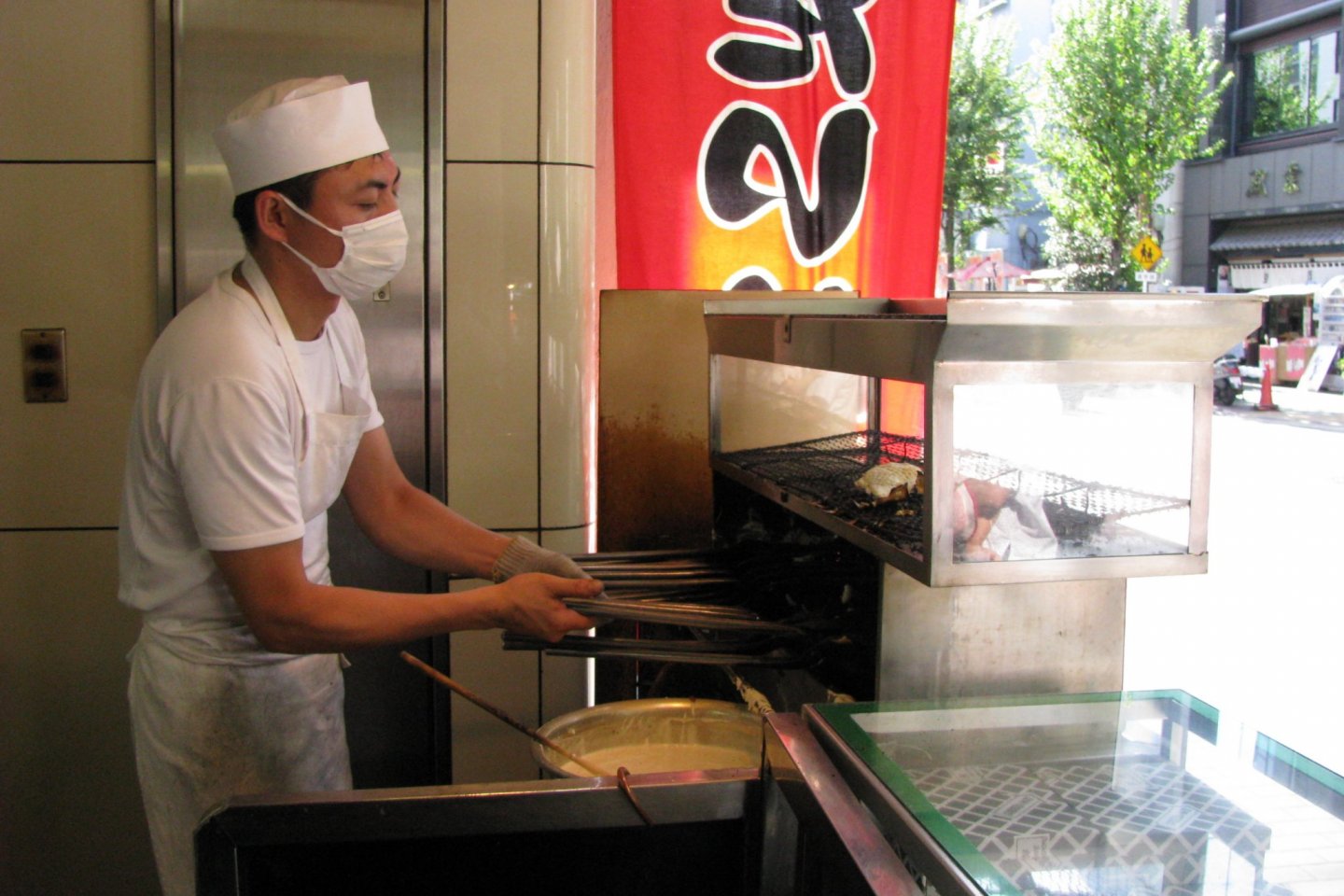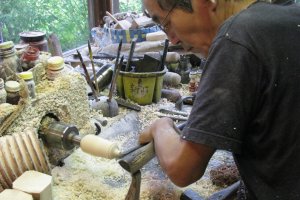When I travel to another country, I pay attention to the things that I can’t see back at home - and one such thing is the opportunity to watch masters of various fields at work. You'll often find masters demonstrating their crafts in Japan for the purpose of attracting customers.
On my first visit here, I was surprised to find open kitchens in many restaurants. In my country, restaurant kitchens are always hidden from customers, but in Japan one can watch chefs at work: you'll see them cutting, roasting and baking away. Some dishes like takoyaki (pieces of octopus coated in batter) or taiyaki (a fish-shaped pastry, often filled with custard) are cooked quickly right before the customer. In special restaurants, dishes like okonomiyaki (a savory pancake styled dish, often filled with cabbage and meat or seafood) and monjayaki (similar to okonomiyaki but with a thinner batter) are cooked on special hot plates directly on customer's tables. This gives patrons the chance to watch the whole process of cooking, from putting ingredients together all the way through to the finished dish. During festivals, dishes are cooked in food booths where you can appreciate masterful cooking skills before tasting your selection.
Besides chefs, masters of other fields - wood masters for instance - also demonstrate their work. As I have a particular interest in dolls, I often met with doll masters or ningyoka in Japanese. In the Tohoku region of Japan, kokeshi dolls are quite popular, and at places like Kokeshi Mura, Matsushima-Kaigan and Naruko, one can watch the whole process of making kokeshi: woodturning, painting, and waxing for the protection of wood and paints. Those places also offer hands-on opportunities to try painting a doll for yourself. After trying it, one can understand that it’s not as easy as it may seem compared to watching the work of a master! In the small seaside town of Ito, I had the chance to meet a wood master who taught classes making small wooden animals with children. The masters I met were really kind people, so I wanted to buy some of their pieces to support them and to keep fond memories.
Alongside that, I've had the opportunity to meet Japanese doll artists showing their workshops to visitors and special guests. Once, I visited the studio of famous doll master Tsujimura Jusaburo who used to have his own puppet show on TV. The studio of the famous doll master was a special museum-studio hybrid, where one could see the master’s ready-made works displayed in showcases, the process of making a doll, and puppets in action by Tsujimura-san in person. For doll enthusiasts like myself, there is a unique collection of oshie dolls displayed at a store named Bell Ami in Matsumoto, where masters give classes on making dolls out of paper.
Japan also offers a wide range of hands-on classes, allowing you to try out everything from creating your own ceramics to hakata doll painting, making Japanese sweets and more. Give them a try - it certainly makes you appreciate masters at work!




























https://en.japantravel.com/saitama/iwatsuki-doll-history-museum/41516
Doll master Fukuda-sensei took time to talk with me about not only doll culture but Japanese culture and changing attitudes about old ways of doing things. He taught me so much in just an hour long tea drinking session.